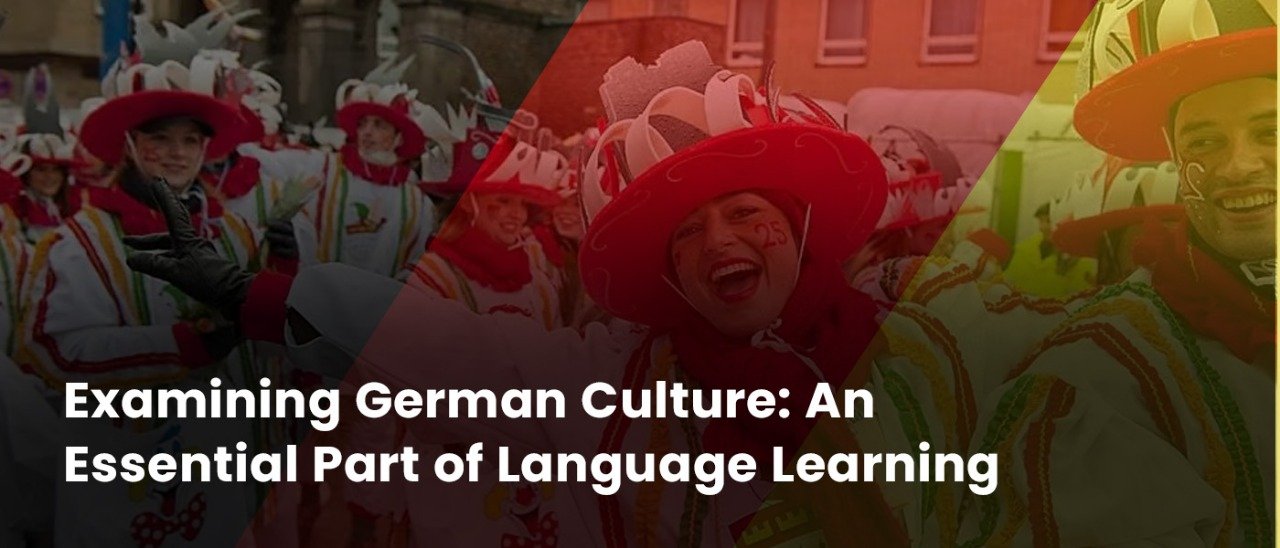German culture as part of learning
German culture as part of learning

German culture as part of learning
German culture as part of learning
Examining German Culture: An Essential Part of Language Learning
One thing is evident while learning any new language: culture and language are intertwined. Exploring the rich and intriguing culture that influences Germans’ communication, thought processes, and way of life is crucial to understanding and speaking German confidently.
At Langosmart, we think that learning a language is about interacting with people and their culture, not just learning words. Now let’s explore how knowing about German culture might enhance the effectiveness, enjoyment, and significance of your educational path.
1. Culture Is Reflected in Language
Speaking in German frequently conveys order, formality, and respect. For instance, using “Sie” rather than “du” in formal contexts demonstrates respect.
The German value of clarity and order is reflected in the exact sentence constructions.
You can use the language more naturally and prevent misunderstandings by being aware of this cultural background.
2. Festivities and Customs Imply Increased Vocabulary
Germany is the location of famous festivals such as:
The biggest beer festival in the world is called Oktoberfest.
Winter wonders in the Christmas Markets (Weihnachtsmärkte)
Karneval is a vibrant festival with parades and costumes.
You may pick up new words, expressions, and idioms in a lively and enjoyable way by learning about the customs, cuisine, and traditions of these festivals.
3. Media, Music, and Film: Acquire the Language Like a Native
You can benefit from seeing German films, listening to German music, and following local influencers.
Boost your pronunciation and listening skills
Learn some slang terms
Continue to be entertained and involved
For a genuine linguistic experience, try viewing programs like Dark or listening to musicians like Cro or Mark Forster.
4. Food Culture: Delectable Terms to Acquire
There’s more to German food than pretzels and sausages! Discover local cuisine, such as:
Bratwurst (grilled sausage)
Kirschtorte Schwarzwälder (Black Forest cake)
Spätzle (soft egg noodles)
Because language associated with emotion and experience is more likely to stick in your memory, learning food-related terms while sampling new foods helps you remember them better.
5. Social Etiquette: Use German Expressions
Germans are renowned for their directness, punctuality, and deference. Knowing these cultural conventions enables you to employ the language correctly in many contexts:
How to properly versus casually greet someone
Personal space and body language
Dos and don’ts when speaking
Gaining proficiency in this aspect of the culture enables you to speak with assurance in everyday situations.
Why Culture Facilitates Language Acquisition
Immersion in German culture makes you feel closer to the language.
You acquire context in addition to vocabulary.
You gain a greater understanding of German thought and communication.
It changes your path from “learning a language” to “using the language in daily life.”
How Langosmart Aids in Cultural Learning
We combine language instruction with cultural immersion at Langosmart:
Trained and native teachers
Real-world scenarios and conversations
Cultural insights in each class
Interactive sessions centered around German holidays, cuisine, and customs
We are aware that you are learning more than just German. You’re getting ready to experience it.
Conclusion
Language serves as a gateway. The secret is culture.
Investigate the people, locations, and customs that underlie the terms if you’re serious about learning German.
Ready to start learning German the Langosmart way?
Visit www.langosmart.com
Let’s learn the language and love the culture—together.

